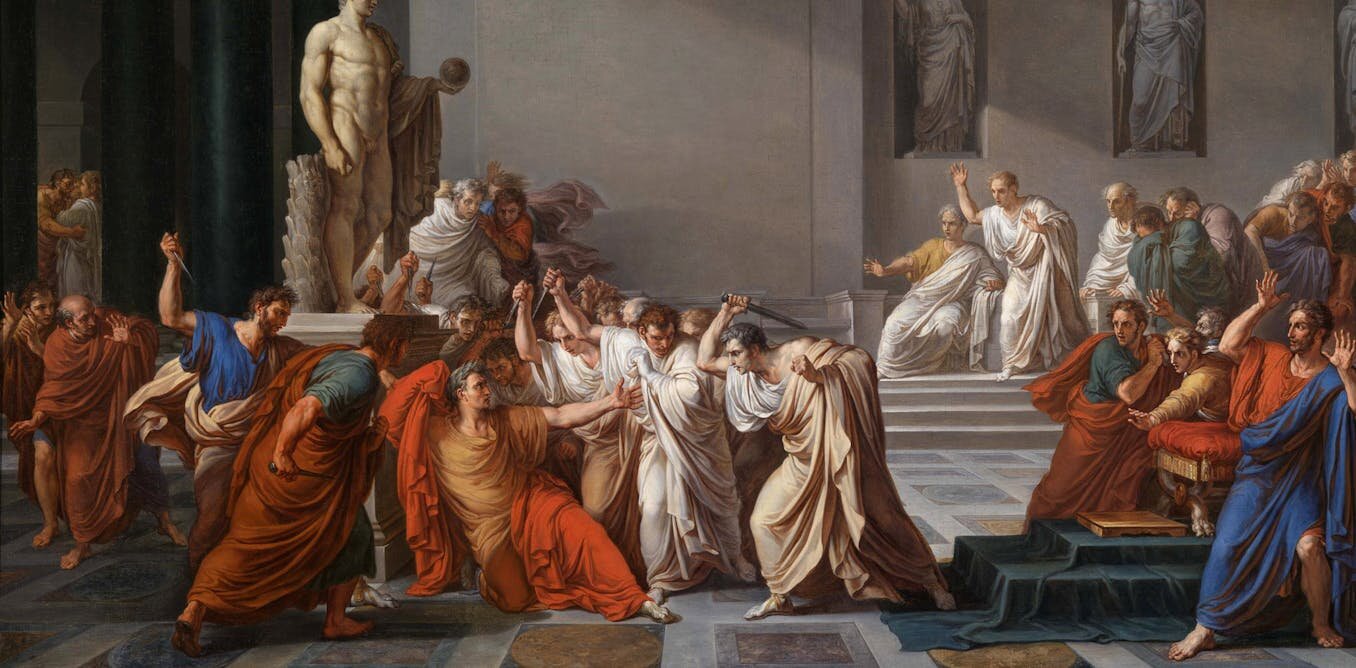I joined Turchin and a few others who were establishing a new field—a new way to investigate history. It was called cliodynamics after Clio, the ancient Greek muse of history, and dynamics, the study of how complex systems change over time. Cliodynamics marshals scientific and statistical tools to better understand the past.
The aim is to treat history as a "natural" science, using statistical methods, computational simulations and other tools adapted from evolutionary theory, physics and complexity science to understand why things happened the way that they did.
![]()
One of the most common patterns that has jumped out is how extreme inequality shows up in nearly every case of major crisis. When big gaps exist between the haves and have-nots, not just in material wealth but also access to positions of power, this breeds frustration, dissent and turmoil.
"Ages of discord", as Turchin dubbed periods of great social unrest and violence, produce some of history's most devastating events. This includes the US civil war of the 1860s, the early 20th-century Russian Revolution, and the Taiping rebellion against the Chinese Qing dynasty, often said to be the deadliest civil war in history.
All of these cases saw people become frustrated at extreme wealth inequality, along with lack of inclusion in the political process. Frustration bred anger, and eventually erupted into fighting that killed millions and affected many more.
![]()
Perhaps one of the most surprising things is that inequality seems to be just as corrosive for the elites themselves. This is because the accumulation of so much wealth and power leads to intense infighting between them, which ripples throughout society.
In the case of Rome, it was the wealthy and powerful senators and military leaders like Julius Caesar who seized on the anger of a disaffected populace and led the violence.
This pattern also appears at other moments, such as the hatred between southern landowners and northern industrialists in the run up to the US civil war and the struggles between the Tsarist rulers and Russia's landed nobility during the late 1800s.
Meanwhile, the 1864 Taiping rebellion was instigated by well educated young men, frustrated at being unable to find prestigious positions in government after years of toiling away at their studies and passing the civil service exams.
What we see time and again is that wealthy and powerful people try to grab bigger shares of the pie to maintain their positions. Rich families become desperate to secure prestigious posts for their children, while those aspiring to join the ranks of the elite scratch and claw their way up. And typically, wealth is related to power, as elites try to secure top positions in political office.
![]()
These patterns probably sound familiar. Consider the college admissions scandal in the US in 2019.
![]()
Donald Trump is only one recent and fairly extreme version of this motif that pops up time and again during ages of discord
![]()
If the past teaches us anything, it is that trying to hold on to systems and policies that refuse to appropriately adapt and respond to changing circumstances—like climate change or growing unrest among a population—usually end in disaster. Those with the means and opportunity to enact change must do so, or at least to not stand in the way when reform is needed.
![]()



Admittedly I don't know if Marx is taught to history undergrads. I took sociology where Marx is considered one of the founders so he was mentioned at least in passing in most of my classes.
But Marxism is significant historical approach so I'd be surprised if his ideas weren't mentioned to undergrads.
My first introduction to Marx (beyond reading a bit of Capital in high school because it seemed transgressive) was from my friend studying history in university.
He will be mentioned, but the only people who actually read any Marx or Marxist thinkers past the Manifesto (not even excerpts from Capital) is anthropologist and sociologist undergrads and grads, and philosophy PhD students who are specifically trained in learning and reading about Marx and Marxist history. Sovietologists used to be basically historians that read Marx, but all of those postgrad programs were financially scuttled in the 90's.
My point is, based off of reading what they have wrote, they have heard of Marx, but they have 100% never actually read any Marx or Engels and have absolutely no idea what they are talking about about when it comes to the philosophy of historical materialism, the data that was used to support these theory, and the general amount of economic revelation that they were at the time, even to non-revolutionary Marxist thinkers. To these guys, Marx is a footnote in history, as opposed to what he really is, one of the foundational and most important structuralist thinkers of the 20th century, whose descriptions and predictions of economic trends have been the only ones to play out from that time period.